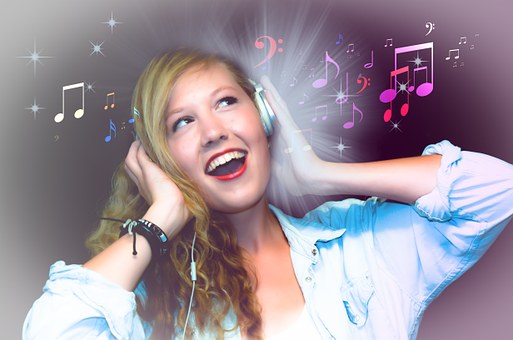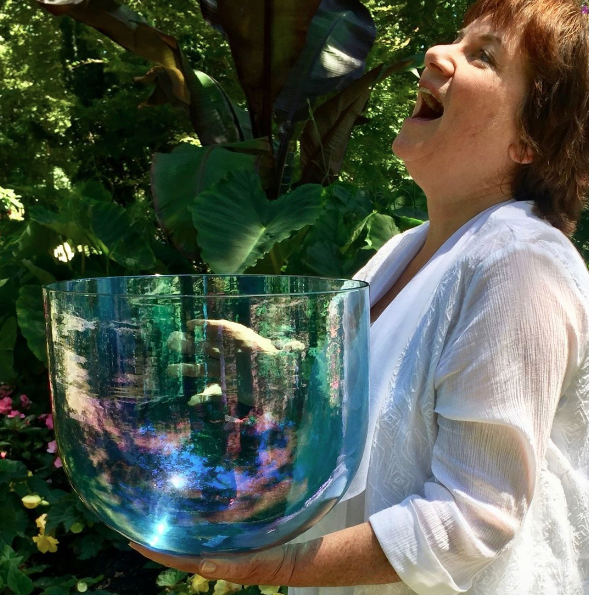This time, when we sang her 7 Sounds of Love in various keys (or modes), I found myself attracted to the Dorian Mode. It's a scale where joy and sorrow embrace. It starts in a rather dark mood and then rises to a sweet resolution. Much to my surprise, it helped me release old grief that I wasn't even aware was still trapped in me. Singing the tones of that scale shifted me back and forth between despair and joy and moved physical energy as well. Finally I released deep sobs. This healing process continued for several days, as I surfed the waves of emotion. Eventually I felt much lighter. My body was energized and less inflamed. My spirit was calm and serene. What a relief!
This healing process reminds me of Khalil Gibran's wisdom: Joy and sorrow are inseparable...together they come, and when one sits alone with you...remember that the other is asleep upon your bed.
What are Musical Modes?
Different musical scales or modes have different expressive characteristics, allowing us to experience and convey a variety of emotions. We can also utilize different musical modes to change our mood. We can identify the mode of our speaking voices as well, and gain insight into the feelings behind the words.
The 7 musical modes that I practice and teach are recorded on Chloe's CD--Sound Awareness. Try singing along as a daily meditation and see what happens for you. Which modes are you attracted to? Does your favourite shift from day to day? What soul journeys do the various modes take you on?
The musical modes are named for geographic and ethnic regions of ancient Greece. Some of the Greek modes are:
IONIAN—C major scale
DORIAN—D, mixed light and dark. Feeling confused, indecisive. Helps you engage creatively with the unknown. [Greensleeves, Scarborough Fair]
PHRYGIAN—E, dark Kali, our shadow side
LYDIAN—F, has open, bright “Ma”. [Sound of Music]
MIXOLYDIAN—G, Blues 7th “NI”. Used by Hildegard of Bingham [Norwegian Wood, Beatles]
AEOLIAN—A, Longing, lamenting feeling. [Summer Time]
The writings of Plato and Aristotle include large sections that describe the effect of different musical modes on mood and on character formation. For example, from Aristotle's "Politics",
“The musical modes differ essentially from one another, and those who hear them are differently affected by each. Some of them make men sad and grave, like the so called Mixolydian; others enfeeble the mind, like the relaxed modes; another, again, produces a moderate or settled temper, which appears to be the peculiar effect of the Dorian; and the Phrygian inspires enthusiasm.” The effect of modes on character and mood was called the 'ethos of music.' (http://en.wikipedia.org/wiki/Musical_mode) Plato believed that a change in the musical modes of the state would cause a wide-scale social revolution. The Chinese believed this too, and they therefore limited the types of music that were allowed. What do you think? Do musical trends affect society and behaviour?



 RSS Feed
RSS Feed